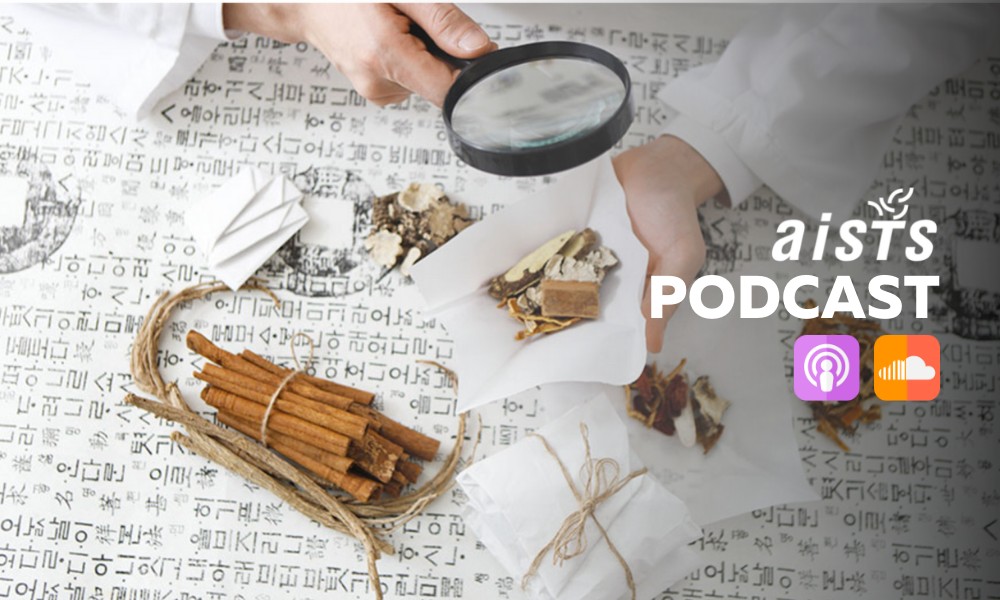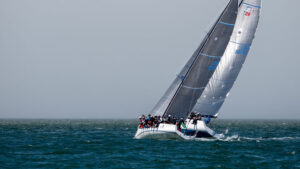
AISTS MEDICINE PODCAST #68
Hanbang Medicine
This episode discusses traditional Korean medicine which is also the typical oriental medicine. Hanbang provides non-invasive, human-friendly, and doping-free care to athletes by practising the five techniques of Hanbang. This AISTS Sport Medicine podcast is created together with AISTS Class of 2020 Jia Choi and Won Lee. The AISTS Sport Medicine podcast is supervised by Professor Boris Gojavonic, MD.
You can read the full transcript of this AISTS Sport Medicine Podcast episode below:
Jia Choi: Good morning, Welcome to AISTS 2020 medical podcast! We have Hanuisa Won Lee here with us today to introduce a little bit about Hanbang, also known as Traditional Korean Medicine in Sport.
Hello, pleasure to have you here with us today.
Won Lee: Hello Jia, pleasure to be here as well!
Jia Choi: I’m super excited about this topic as we hear about conventional medicine, medical teams and staffs in sports when Hanbang is rarely mentioned. Before we begin, can you explain what Hanuisa and Hanbang is to the listeners? I’m sure many are unfamiliar with this term.
Won Lee: Yes, of course. As you mentioned I am Hanuisa (doctor of Hanbang) specialized in sport. Hanbang is a traditional Korean medicine that you might be familiar with typical oriental medicine. We provide non-invasive, human-friendly, and doping- free care to athletes by practicing the five techniques of Hanbang.
Jia Choi: Interesting! The use of Hanbang is pretty common in Korea that many Korean professional sports teams involving volleyball, basketball, martial arts, and ice hockey often hire Hanuisa like you as part of the team doctors/medical staff. Right?
Won Lee: Absolutely! We are very much involved in many different sport teams. We are also part of policlinics in Korea. So, you know what policlinics are in Mega Sporting Events?
Jia Choi: Yes, it’s like separate hospital in the Olympic Village where they provide diverse medical services, from general practice, orthopaedics, physiotherapy and more. Right?
Won Lee: You are correct. But there’s one specialty area you won’t find in any other sporting events other than those hosted in Korea.
Jia Choi: Is it Hanbang? How did it begin?
Won Lee: The first Hanbang policlinics for a sports competition opened in the 2014 Asian Games. This was the first time that a medical center specializing in Korean medicine had ever been provided for athletes participating in a global competition.
Jia Choi: Wow, Was it just this once?
Won Lee: No, it continued from there on. 2015 Gwangju Summer Universiade, 2018 PyeongChang Olympics and the 2019 FINA World Championships and the studies done by the Society of Sports Korean Medicine which recorded more than 1,500 injury and illness cases for Hanbang policlinics in these events.
Jia Choi: Lots of cases! However, further study seems necessary! I heard a rumour that due to the excellent care, officials from 2020 Tokyo Olympics showed great interest in the clinic as well as its services?
Won Lee: Uh huh!
Jia Choi: Very Nice.
Jia Choi: Let’s discuss a couple of Hanbang techniques and hear who used them. Any star athletes?
Won Lee: Plenty! From the Korean athletes, while Olympic Gold figure skater Kim Yuna used acupuncture to alleviate her back pain, Park Ji-Sung, who used to play for the Manchester United, likewise turned to Hanbang whenever his leg was injured.
Jia Choi: What is the origin of acupuncture? And how is this performed?
Won Lee: Well, acupuncture is a 3,000-year-old technique that promotes natural process by stimulating anatomic sites (Acupoints) by inserting sterilized needles into the skin. There are studies that support that acupuncture may help ease several types of chronic pain in the lower back, as well as osteoarthritis, and migraines.
Jia Choi: Is there any clinical trials to confirm acupuncture’s effectiveness?
Won Lee: Yeah! I’ll mention one. It’s called ART AND GENAC done in 2006. The result showed acupuncture provided superior therapeutic effects compared to the standard care in the lower back.
Jia Choi: Okay! Then let’s move on to our next technique.
Won Lee: Before we move on, I have a trivia question for you! What has 19 gold medals and a bunch of purple circles?
Jia Choi: Michael Phelps! I guess the next technique must be cupping then!
Won Lee: Yes! Some athletes including Michael Phelps and an American Gymnast, Alexander Naddour who use it swear by it, saying it keeps them injury free and speeds recovery!
Jia Choi: How does it work exactly?
Won Lee: Well Cupping removes stagnation and stimulates the flow of Qi. They use special
cups made out of bamboo, glass, or silicone and place it on your skin to create suction. Warming the air within the cup, a vacuum is created, and the tissue is drawn up into the cup, which increases the blood flow and loosens the connective tissue.
Jia Choi: Any risks or side effects?
Won Lee: Well, Cupping may cause temporary bruising and soreness, depending on the degree of suction. However, this means that a treatment has been successful!
Jia Choi: Okay! Any medical research that depicts clinical outcomes of cupping exists?
Won Lee: Of course! Although many people are still trying to uncover the truth behind cupping, many studies have shown cupping helps with musculoskeletal, back, neck
pains, and even carpal tunnel syndrome.
Jia Choi: But do you remember the Korean Swimming Olympian Park Tae-Hwan chose who
chose to treat his corns by Hanbang over the usual conventional medicine
Won Lee: Yeah it brings to my next technique, Moxibustion. He was 17, winning three golds at the 2006 Doha Asian Games but his corns affected his training while aiming for the next championships. Having a surgery would have required a one-month post-surgery rest.
Jia Choi: So Moxibustion saved his career! This is why he chose Hanbang! How does this technique work?
Won Lee: Moxibustion is a form of heat therapy in which dried plant called “moxa” are burned on the surface of the skin. The intention is to warm and invigorate the flow of Qi in the body. 10 days of direct moxibustion significantly reduces back pain caused by local muscle fatigue and this is supported by scholarly journals in the US and Professor Park Hi Joon.
Won Lee: there are couple potential risks that I would like to highlight on. The first is the doping risk of using herbal medicine. There have been some cases where an athlete was accused of doping due to the consumption of oriental herbs.
Jia Choi: It sounds all so magic to me. We hear all these superstars using these therapies, curing so many problems – There must be some critiques about all these methods? Any limitations of risks that we should be aware of?
Jia Choi: What happened?
Won Lee: It turned out the athlete obtained pills from an uncertified health food shop. Here, the important aspect we have to remember is this: medicine should only be prescribed by those professionals who are certified for prescription.
Jia Choi: Yes, that’s very important even applies to the conventional medicines. Any other risks?
Won Lee: While there’s no question that many athletes, coaches and trainers believe in the treatment, there’s not much science to determine whether Hanbang offers a real physiological benefit or whether the athletes simply are enjoying a placebo effect. However, my close colleague, Dr. Kalichman from the United States believes the treatment has a real physiological effect after all. Cupping, by causing local inflammation, triggers the immune system to produce cytokines to help modulate the immune response. Still, a placebo effect can be beneficial, and for athletes at the Olympic level any legal edge may be worth a few eye-catching bruises.
Jia Choi: Then the future discussions should not be whether Hanbang is a stand-alone or supplementary medicine; it should be more focused on how to promote this Oriental technique so that more people may find alternative solutions for their long-lasting pain.
Won Lee: Yes, many individuals, in dire need of eliminating existing pain, have taken a leap of faith to try Hanbang and the results, as shown in randomized controlled trials, have been successful. So, it is just the matter of promoting this oriental technique that many global citizens can benefit from.
Jia Choi: Thank you for sharing interesting topic with us today. I look forward to discussing other topics with you next time.
Won Lee: You are very welcome. Thank you for having me.
Jia Choi: This is it for our AISTS medical podcast today. Thanks for tuning in and more to come next week!
You can find more AISTS Sport Medicine podcast on our Soundcloud channel or on the Apple Podcast app. To learn more about the AISTS Master of Advanced Studies in Sport Administration and Technology, visit https://aists.org/education/master-in-sport-management/
Recent articles





